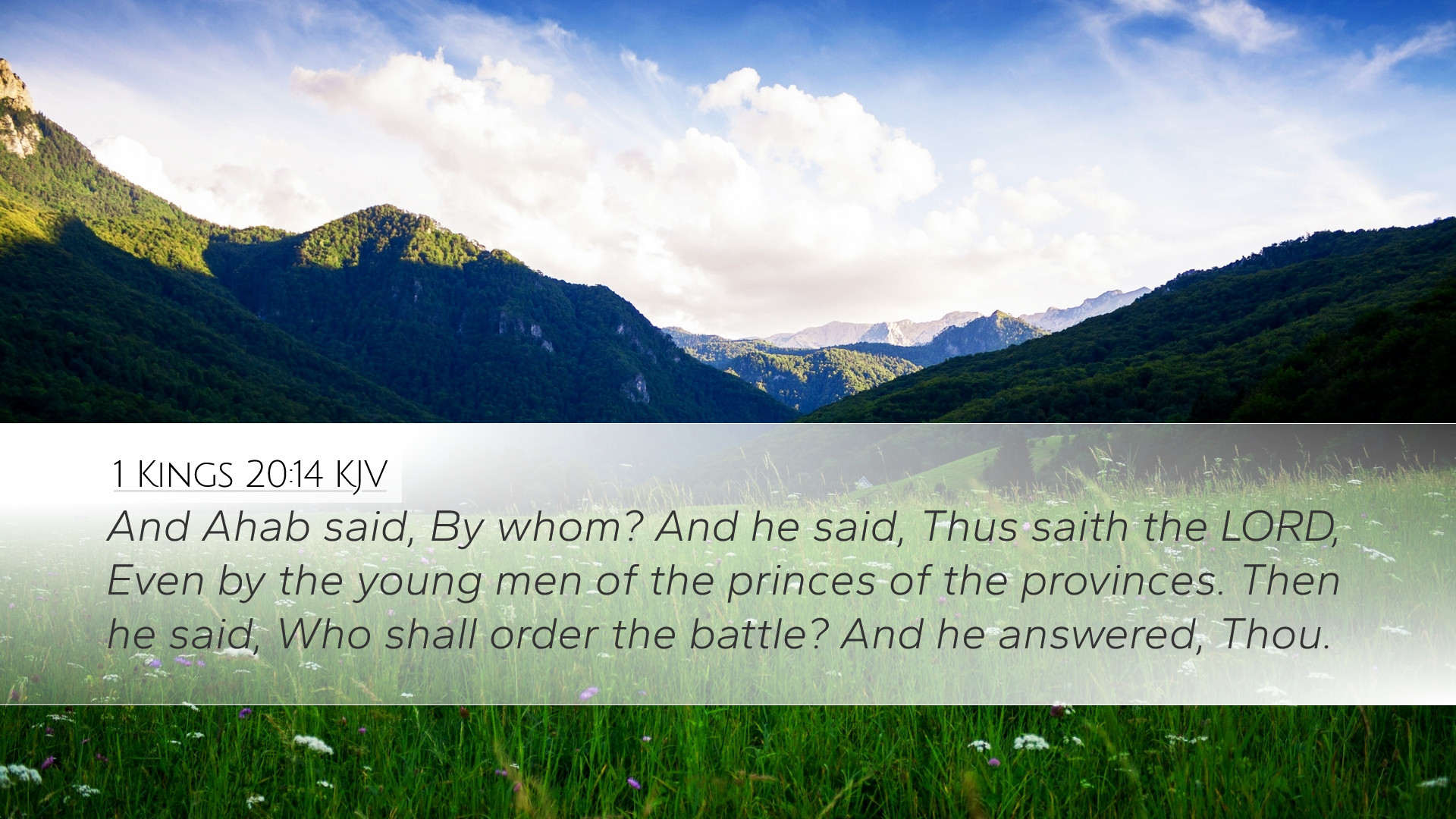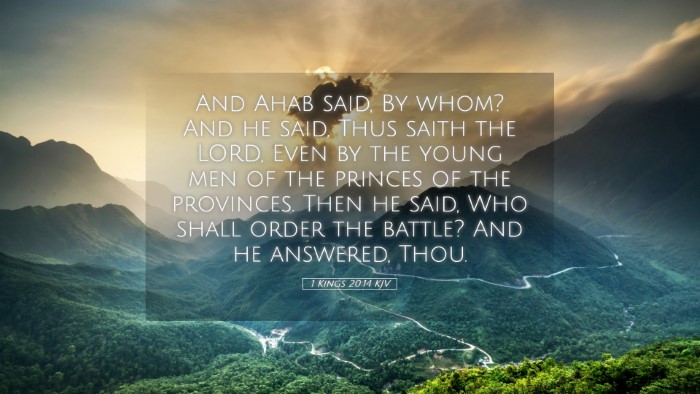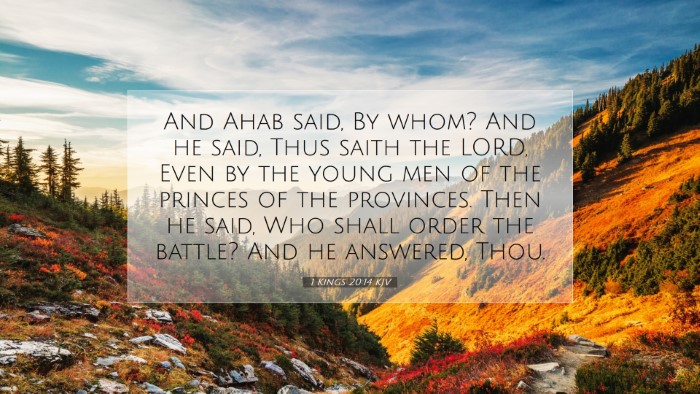Commentary on 1 Kings 20:14
1 Kings 20:14 states: "And Ahab said, By whom?" And he said, Thus saith the Lord, Even by the young men of the princes of the provinces. Then he said, Who shall order the battle? And he answered, Thou."
Introduction
This verse occurs within the narrative of Ahab’s confrontation with Ben-hadad, king of Syria. The context reveals a pivotal moment where divine intervention is about to be communicated through a prophetic messenger. Ahab's inquiry suggests a level of curiosity mixed with skepticism regarding the Lord's deliverance. The dialogue encapsulates a larger theological theme: God's sovereignty over nations and His willingness to use the humble and unexpected in achieving His purposes.
Commentary Insights
Divine Agency and Leadership
Matthew Henry emphasizes that God often chooses unlikely means to accomplish His will. In this situation, the "young men of the princes of the provinces" are depicted as the instruments of Israel's victory, which underscores that God can use even the most inexperienced or seemingly insignificant individuals to execute His plans. This reflects a profound truth applicable across various contexts: that divine power does not rely on human capabilities.
Adam Clarke adds depth by arguing that this choice of youthful leaders could symbolize the renewal of Israel's strength and hope. It suggests a generational transition, where the upcoming leaders (youth) might provide a fresh perspective and vigor in the defense against their oppressors. Clarke notes that the use of these young leaders also serves as a reminder that God’s plans transcend human expectations.
Ahab’s Role and Responsibility
Ahab’s question, "By whom?", indicates a significant moment of decision where he may be contemplating who is to lead this battle. Albert Barnes points out that Ahab displays both curiosity and hesitance. His engagement in this dialogue shows an openness to divine guidance, even if his faithfulness is lacking. Ahab, as king, is responsible for leading his people, yet he must recognize that ultimate victory comes from the Lord.
Matthew Henry also reminds readers here about the nature of leadership within the context of spiritual warfare. It is not simply about commanding armies but requiring a deep reliance on God’s wisdom and direction. Ahab's acknowledgment of God’s input could indicate a turning point in his character if he would only embrace it.
Faith and Obedience
The instruction "Who shall order the battle? And he answered, Thou." reveals an expectation of action coupled with the requirement for faith. Adam Clarke elaborates that this command offers Ahab an opportunity for obedience. The nature of the directive implies that the leadership he seeks is already laid upon him, thereby placing him in a position where he must act according to God’s word, even if it does not align with human wisdom.
- Faith in Action: Ahab's obedience could lead the nation towards restoration and victory.
- Humility Before God: Ahab's acceptance of God's direction serves as a template for leaders today.
- Courage to Lead: Accepting God's command not only reflects Ahab’s character but also sets a tone for his administration.
Theological Implications
This verse and its context speak volumes about God’s providential hand in history. It illustrates that the Lord does not work through the wise or the strong but often chooses the foolish and weak things of the world to accomplish His purposes (1 Corinthians 1:27). The implications for pastoral leadership highlight the necessity of dependence on God for direction and strength in fulfilling one's calling.
Conclusion
The engagement between Ahab and the prophetic message is multilayered—offering insights into faith, leadership, and God’s providence. Both Ahab's hesitant nature and the choice of young leaders present a powerful call for contemporary leaders to remain obedient to God’s direction, regardless of outward appearances or conventional norms. The narrative inspires individuals to embrace humility, submit to divine authority, and trust in God’s plan for deliverance and victory.
In summary, 1 Kings 20:14 provides a potent reminder that God equips and empowers those who trust Him, leading to victories that are aligned with His divine purpose. The study of this passage encourages an exploration of how God works through our circumstances, and it challenges today’s leaders to look beyond human understanding and to seek divine wisdom in their endeavors.


